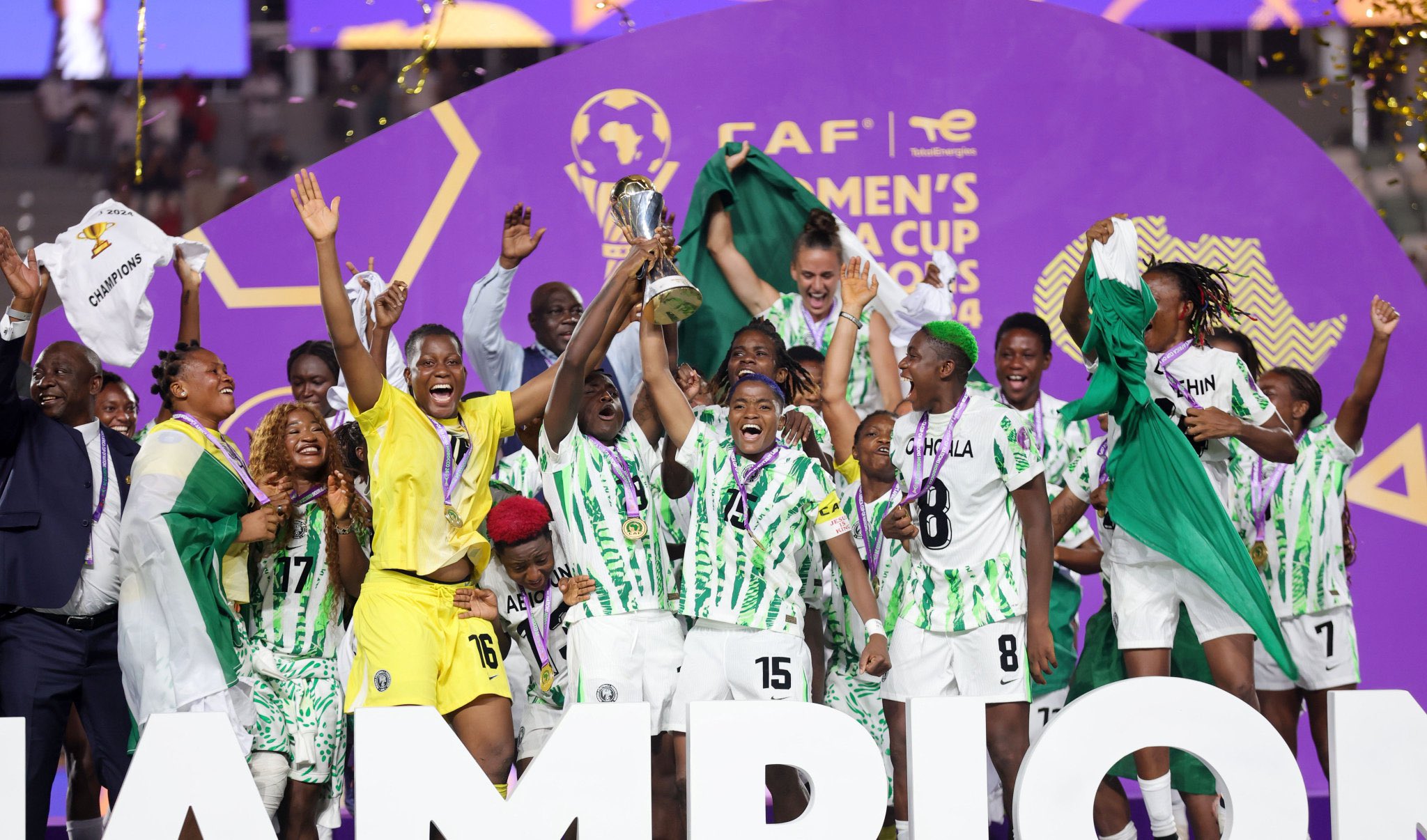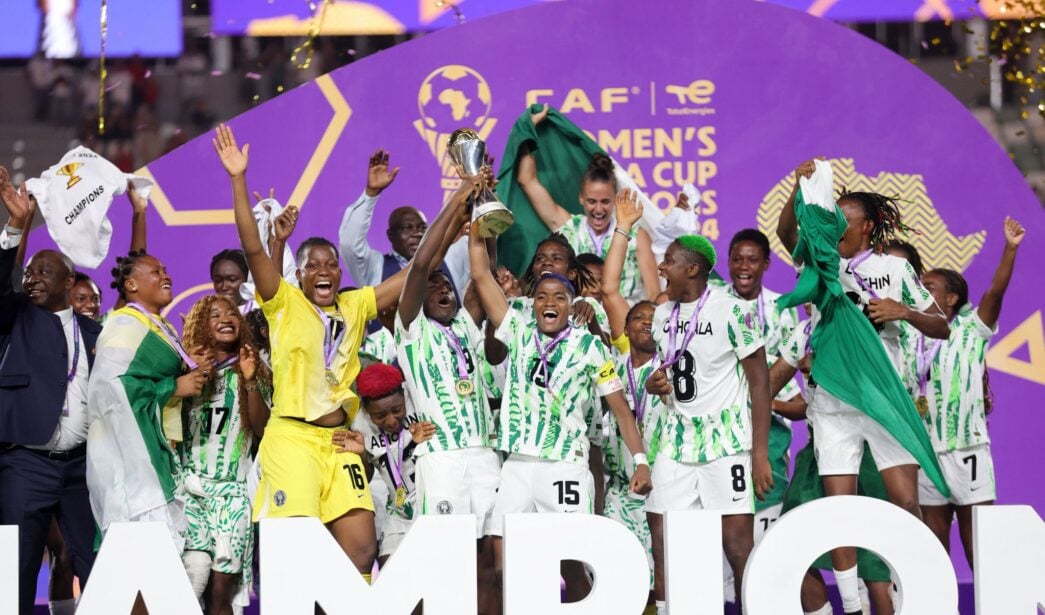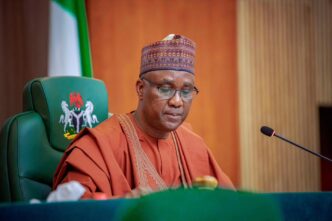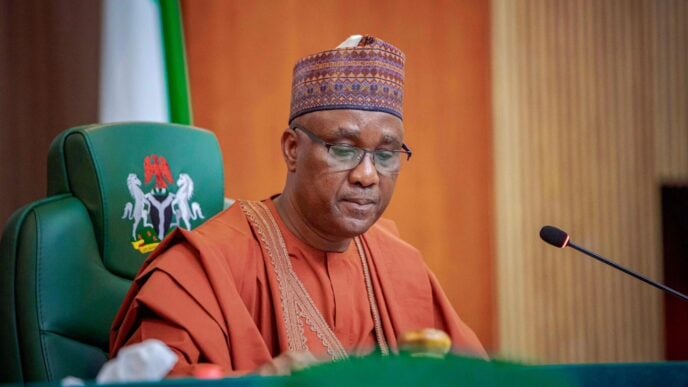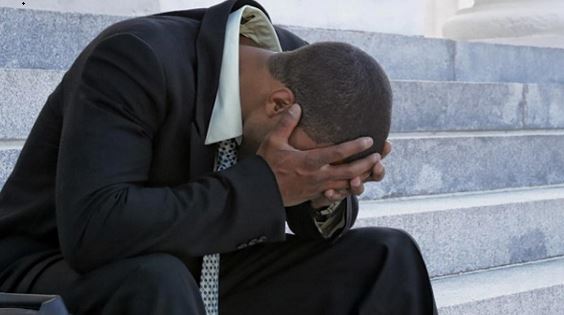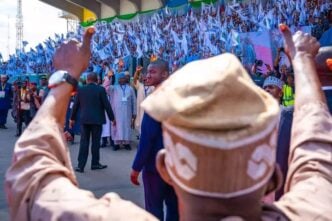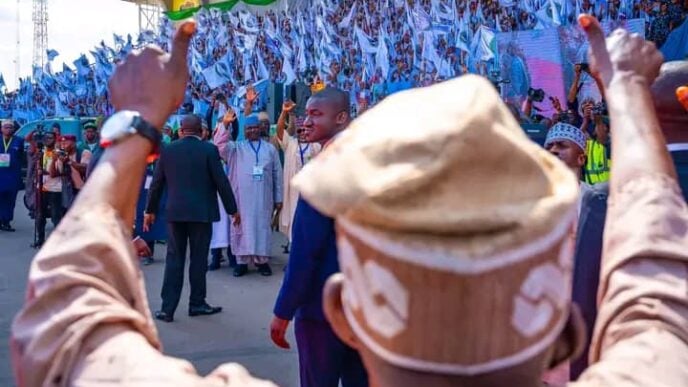BY LEKAN OLAYIWOLA
The Super Falcons soared to victory, but their triumph casts a harsh light on the institutions that continue to fail Nigerian women on and off the pitch. For the tenth time, Nigeria’s Super Falcons lifted the 2024 Women’s Africa Cup of Nations (WAFCON) trophy in Morocco. Their consistency on the continental stage and visible growth at the FIFA Women’s World Cup place them among Africa’s most successful football teams—male or female.
In sharp contrast, the Super Eagles continue to struggle, alternating between lacklustre performances and new excuses: poor pitch, bad officiating, or the ever-convenient scapegoat—mismanagement by the Nigeria Football Federation (NFF).
But here’s the rub: the Super Falcons operate under the same institution. They endure the same corruption allegations, the same unpaid allowances, the same NFF inefficiencies. If anything, the women’s team has been treated worse, fighting harder for recognition, travel arrangements, bonuses, and even jerseys. And yet, they win.
Advertisement
This isn’t just a sports story. It’s a question of gender, institutional decay, and what resilience really looks like under pressure. It forces us to rethink the way we narrate failure and celebrate success in Nigerian public life.
The Gender of Grit
For decades, Nigerian women athletes have learned that no one is coming to save them. They have no luxury of ego or entitlement. The Falcons’ journey is one of grit, discipline, and emotional labour, often carried out in the shadows of an institution that barely notices their excellence until trophies arrive.
Advertisement
The men’s team, by contrast, swims in public adulation and higher pay but remains structurally fragile. They have higher expectations, but often lower accountability. The contrast isn’t in talent—it’s in team spirit, hunger, and the ability to perform amid institutional neglect.
This gender gap in performance is not accidental. It’s structural. Women athletes, especially in postcolonial states, build careers by navigating systemic disrespect, limited investment, and cultural ambivalence. This produces a collective toughness often absent from more celebrated male squads.
Gender, Power, and the Blame Game in Nigeria’s National Teams
There is a deeper cultural script at work here. Failure, when it comes to men, is often externalized. We are told “the NFF failed them” or “the coach is the problem.” There’s always a narrative insulation, a buffer of excuses. Women, on the other hand, are expected to succeed quietly or be forgotten.
Advertisement
That’s why the Falcons win with strikes, protests, and training boycotts in the background; they carry both the burden of performance and the cost of institutional betrayal. And yet, they deliver.
Perhaps the most telling factor is the way society conditions athletes based on gender. Female athletes in Nigeria are implicitly taught to overperform under neglect. The institutional apathy toward women’s sports creates a culture where excellence must be earned without support, acknowledgment, or even basic resources.
Male athletes, especially within elite football, do not face this conditioning. Their careers are imagined within frameworks of privilege and visibility. When institutions collapse, their emotional and tactical frameworks often collapse with it. This is not a moral failure, but a structural one—one that foregrounds the Falcons’ labor as doubly heroic.
Coaching Philosophy and Cultural Fit
Advertisement
The teams’ coaching choices reveal further contrast. While the Super Eagles chase foreign tacticians with astronomical salaries and low cultural immersion, the Falcons have often succeeded under local or even female coaches with much less but deep understanding of local context.
The Falcons often flourish under local coaches who understand both the emotional pulse and tactical needs of the team. These coaches emphasize team chemistry, mental resilience, and adaptability—qualities vital in navigating systemic dysfunction.
Advertisement
Meanwhile, the Eagles’ reliance on foreign coaches, though reflective of global ambition, frequently backfires. These coaches, while technically sound, are often disconnected from the cultural context and institutional chaos. Their methods may not translate effectively, leaving the team fragmented and directionless.
This isn’t just about football IQ, but leadership rooted in trust, empathy, and moral authority. It also reflects the undervaluing of local expertise, especially when it is female.
Advertisement
Institutional Neglect as Civic Indictment
The Super Falcons’ victories are not just medals—they are indictments. They expose the NFF not merely as corrupt but as selectively ineffective. Where male athletes falter under a system rigged to protect them, female athletes excel despite that same system forgetting them.
Advertisement
This is a gendered paradox: those with the least institutional support are the ones making the institution look most competent. The Falcons represent resilience as protest. They have weaponized disregard, transforming absence of care into moral protest. Their success forces us to ask not just why institutions fail, but why some bodies thrive anyway.
Gendered Resilience and Moral Urgency
The Super Falcons show us what gendered resilience looks like. They offer a living case study of how marginalized actors navigate dysfunction more creatively than those embedded in power. They hold a mirror to Nigeria’s institutions and ask: If we’ve learned to win without support, imagine what we could do with it?
The Super Falcons are not merely winning; they are exposing the NFF’s dysfunction by outperforming it. Their excellence is a mirror held up to institutional failure. Their success, quiet yet consistent, tells a story of refusal to be defined by neglect, refusal to collapse under chaos, refusal to be invisible.
They have been shouting through silence for decades. Their victories demand not just applause, but transformation of policy, culture and governance.
If Nigeria is to rebuild its sporting institutions with any seriousness, the blueprint may already exist. It is coded into the footsteps, match sheets, and locker room conversations of the most under-supported yet most successful team it has ever produced.
The question is not whether the Super Falcons deserve more. The question is whether Nigeria deserves the Super Falcons.
From Sports to Statecraft
There is a broader civic lesson here. Women, across sectors in Nigeria—from farming to teaching, peacebuilding to sports—are often the ones holding the line while the system collapses. The Falcons are simply the most visible example.
We must stop seeing their success as a miracle. It is earned, deliberate, and repeatable. What they’ve built, others can learn from—if we’re willing to pay attention, ask the right questions, and invest in the right places.
The Super Falcons don’t just represent Nigeria. They remind us what it means to win in spite of Nigeria.
Lekan Olayiwola is a peace and conflict researcher and practitioner. He can be reached via [email protected]
Views expressed by contributors are strictly personal and not of TheCable.
